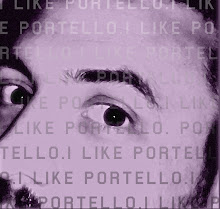Brisbane schoolteacher Jim Dooley has taken a group of kids to the races as part of a maths lesson on risk and probability.
What a truly brilliant idea.
Horse-racing odds are a fascinating application of probability theory. And where better to learn about how it works, and how much it's a mug's game, than there in the midst of sweaty panic and soul-crushing dismay that is the pointy end of the gambling world?
He should follow it up with a trip to the casino.
They can talk about the probabilities of the roulette wheel, the fact that in the long run the house will always win, and point out the desperation in the eyes of the pensioner feeding the last of her housekeeping money into a poker machine.
If it's done right the kids will learn a bit of maths, and learn a lot about the risks, personal and financial, of gambling.
But like so many brilliant ideas, it's been roundly criticised by self-appointed moral crusaders.
In easily one of the most inane comments I've ever heard on this topic, Australian Family Association state secretary Michael Ord said "one may question why you would need to involve gambling to teach maths".
Has this guy ever studied maths? If he has, he clearly wasn't paying attention.
Probability theory is all about flipping coins, choosing lottery numbers and the chances of getting a Royal Flush.
You can't study probability without studying gambling. Gambling is why probability theory was invented in the first place.
And when you get down to it, it's just about the only practical application it actually has.
About Me

- Matt
- Melbourne, Australia
- A science groupie and atheist lost in a superstitious world
Label Cloud
Archive
-
▼
2008
(189)
-
▼
Aug 2008
(17)
- Dead Pool August Update
- An Innocent Russia Writhed
- Actuaries Gone Wild
- When Idols Cry
- This is what it feels like
- Doomsday Delayed
- The Burlesque Hour
- Cool Warming Vase
- Monster Wine
- Area Blogger Returns to Home, Sanity
- Merely a BLP
- Gone Leadin'
- A Very Probable Controversy
- Bootleg Teaser for TR2N
- Atheism and Me - Part 1
- Parlay Voo Too
- Dead Pool July Update
-
▼
Aug 2008
(17)
Skepticism Links
Atheism Links
Friends
Science Links
Science Fiction Links
Matthew Kippen

